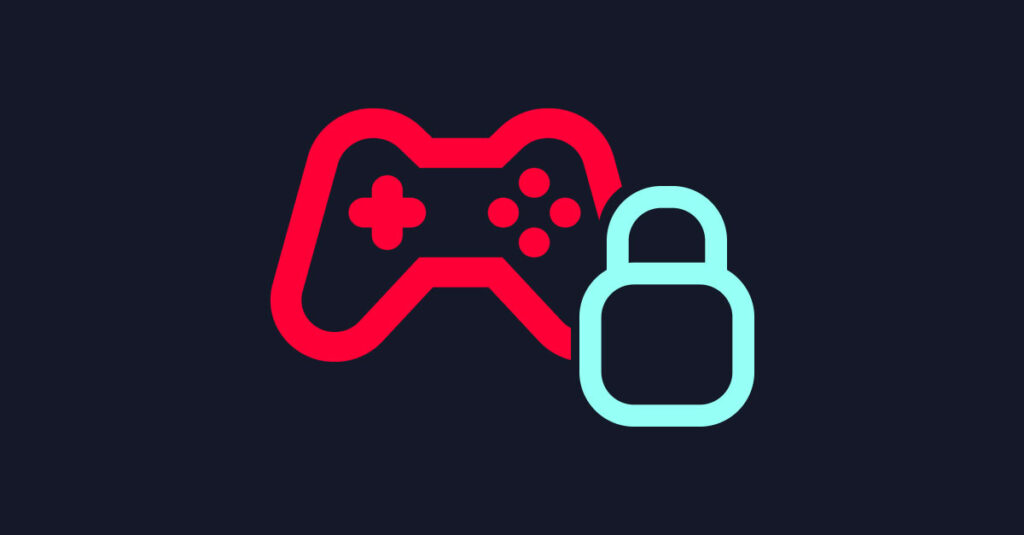
Staying Safe While You’re Gaming
Playing video games is an incredibly popular pastime. Around two billion people play video games regularly, whether it’s “Call of Duty” on a games console, “Minecraft” on a PC or “Candy Crush” on a smartphone. But there are some dangers to gaming online.
October is Cybersecurity Awareness Month, a great reminder to look at all the ways you can protect yourself and your family online. Frontier offers a professional solution with Total Shield and Identity Protection, a whole suite of security software.
Setting up security for your online gaming is a net win. This easily installed software gives you protection for Multi-Device Security, Identity Theft, and Password Management. Now that you know what you need, be sure to protect you and your kids.
What are the biggest gaming risks?
While playing video games online has the most risks, even playing single player games by yourself has a few things you need to be aware of:
Malware, viruses and ransomware. If you download or stream a video game from an official store, it’s almost certainly free of any malware or virus. However, there are lots of other gaming-related things you can download that aren’t always safe.
For example, gaming “mods” (short for modifications) allow you to change how some video games work. Many mods are perfectly safe and supported by the developers, but others are malware uploaded by hackers hoping unsuspecting gamers will download and install them. Similarly, if you try to download any cheats or hacks for popular games, or a “free” version of a game you have to buy from a torrent site, there is a chance it will include malware.
Identity theft, doxxing and swatting. Other than malware, the biggest danger gaming online is that someone will get your personal identifying information (PII). With your PII, a bad actor can do a few things. The simplest is to steal your identity or sell it to other hackers. Then, for example, someone could open a credit card in your name and start making purchases.
On the other hand, if the person with your PII is annoyed or upset with you (possibly because you beat them in a game), they could “doxx” or share your information online. If this happens, you might get harassed in real life or have your identity stolen by someone else.
In the worst cases, if someone knows your home address, they can “swat” you—literally calling 911 and claiming that you are armed and holding someone hostage, so that armed police raid your house.
Losing your account. In some games where you have to buy or unlock valuable items, accounts can be targets for hackers. If there is a certain piece of loot that someone wants (or can sell for a profit), they may try to hack your account and take it. Similarly, in games with a lot of in-app purchases, hackers might try and take over your account to charge your credit card—or just steal your PII.
Cyberbullying and harassment. Cyberbullying and online harassment are real problems that can have serious effects on mental health, especially for teenagers. The anonymous nature of a lot of video games means that it’s an incredibly common problem. If you game online, you will almost certainly see some measure of inappropriate behavior—even if you’re not the target.
How to stay safe gaming
Staying safe while gaming online is much like staying safe online in general. Be aware of what the threats are and take a few simple steps to protect yourself. Some of the best things to do are:
- Only download games from official stores. Don’t look for free versions on torrent sites.
- Don’t install mods, cheats, hacks or anything else you aren’t 100% sure is safe. Keep your antivirus software up to date, too.
- Use an anonymous username. Don’t have any identifying information in it, like your email address, name, location, nationality, birthday, age or anything else.
- Don’t share any PII with the people you’re gaming with. It’s okay to play anonymously.
- Explore the privacy settings of your games console or PC and for each game you play. The default privacy settings are usually not that private.
- Use the block tool to stop cyberbullies and harassers. Block early and block often.
- Play video games with people you know in real life.
- Protect your online gaming accounts with strong passwords.
- Use a credit card to make purchases online—they have better fraud protection than debit cards.
Gaming security for parents
For parents, the number one way to keep your kids safe while they game online is to understand the game that they’re playing. Sit down and watch them play, and ask them questions about what they’re trying to do and why. You could also play the game with them a few times, and even take an evening to play it by yourself to really understand the culture around it. This way, you’ll be better able to assess the kinds of risks your kids are likely to face.
With that said, all the same suggestions above still apply. In particular, make your children aware that sharing personal information online is a really bad idea, and that downloading free games or cheats can cause problems.
More security tips for parents:
- Be aware of the culture around the game they play. Do they also talk to people on Discord, Reddit or another chat app? Some of the risks with online gaming aren’t in the games themselves, but the forums and chat apps games use to coordinate game play.
- Be very careful with freemium games, or any game that includes loot boxes or in-app purchases. Your children could inadvertently spends hundreds of dollars trying to get better gear.
- Check out the parental settings available on most gaming devices—and use them.
- Stay engaged and interested in your child’s gaming habits. By keeping up to date with their gaming life, you’re much more likely to spot problems before anything bad happens.
Experience a future of wins with Frontier Fiber
When you’re uploading and downloading to play, give yourself the fiber advantage. Frontier Fiber was rated #1 internet service provider for online gaming in the country, according to U.S. News & World Report. Frontier Fiber is available in select areas—check here to see when it’s available at your address. Once you have it, keep your identity and devices protected with Frontier’s security support.
Product features may have changed and are subject to change.




Join the conversation